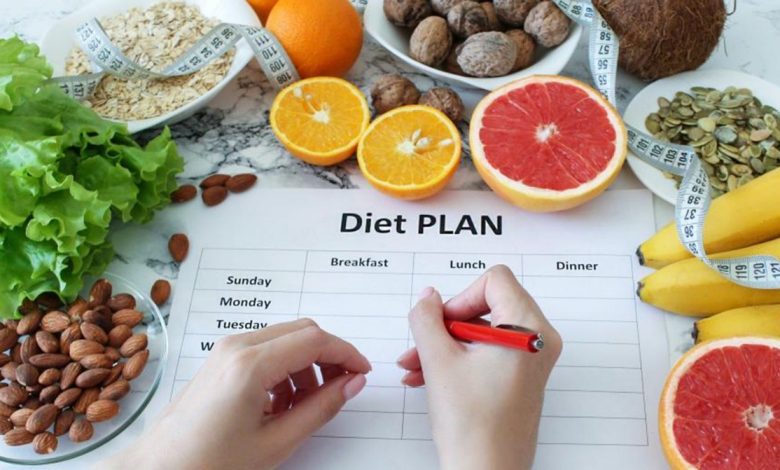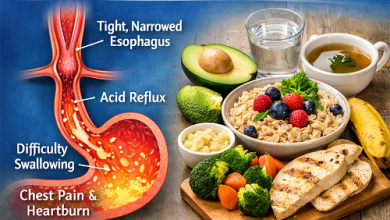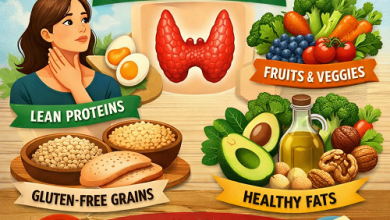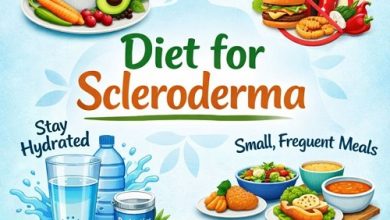Top Diet Plans for Weight Loss in Virginia: What’s Actually Working in 2025

If you’re searching for Top Diet Plans for Weight Loss in Virginia in 2025, you’re not alone. People across the Commonwealth want safe, realistic programmes that fit busy lives — from Richmond to Roanoke and down to Virginia Beach. This article cuts through the noise and shows what the evidence and local options actually say is working right now: the dietary approaches backed by research, how they’re being delivered in Virginia, and practical tips for picking the right plan for you.
Quick headline — the short answer
The most reliable approaches in 2025 combine a sustainable eating pattern (Mediterranean-style or other whole-food plans), sensible calorie control, and behaviour change support. Low-carbohydrate and ketogenic diets still deliver quick weight loss for many people, while intermittent fasting remains a useful tool for some — but no single diet fits everyone. In Virginia, medical weight-loss clinics, hospital-run programmes, and digital coaching (Noom, WW) are the most accessible ways to turn any evidence-based diet into lasting results.
Why “which diet works” is the wrong question
People want a single winner — the magic diet. The truth is more useful: diets work when they create an eating pattern you can sustain long term, reduce overall energy intake (calories), and pair with behaviour change and activity. Reviews and rankings in 2024–25 keep returning to the same theme: dietary quality, portion control and ongoing support determine success more than brand-new gimmicks.
The top evidence-backed diets in 2025 (what the research says)
1) Mediterranean-style (best for overall health + sustainable weight loss)
The Mediterranean way of eating — lots of vegetables, legumes, whole grains, nuts, olive oil, fish and modest dairy/meat — remains the top-rated healthy diet. Research shows it supports weight loss when paired with calorie control and offers cardiovascular and metabolic benefits that matter if you live with high blood pressure, diabetes or heart disease. Many clinicians in Virginia recommend this as the default for people who want lasting change, not quick fixes.
Practical Virginia angle: community nutrition workshops, hospital nutrition services, and dietitians across the state offer Mediterranean-style meal plans and cooking classes — useful if you want face-to-face help.
2) Calorie-controlled, whole-food plans (flexible and evidence-based)
A simple approach that emphasises whole foods (lean protein, veg, whole carbs) while tracking calories or portions remains highly effective. These plans are flexible and easy to adapt to local food culture in Virginia (seasonal produce, seafood, Southern-style modifications). Evidence reviews show energy restriction is a core driver of weight loss, regardless of macronutrient split.
3) Low-carbohydrate and ketogenic diets (fast initial weight loss; clinical supervision advised)
Low-carb and ketogenic (very-low-carb) diets still produce rapid weight loss for many people and can improve blood glucose control in people with type 2 diabetes. Emerging 2024–25 studies confirm meaningful results at 6–12 months for motivated participants. However, these diets can be harder to stick to and might require medical supervision if you have underlying conditions or take medications.
Local note: some Virginia medical programmes offer ketogenic-based meal plans under supervision — check with your clinic before starting.
4) Intermittent fasting (IF) — a tool, not a whole diet
Intermittent fasting (time-restricted eating, alternate-day fasting) continues to be popular. Recent meta-analyses report small-to-moderate benefits for body weight versus usual diets, with results comparable to continuous calorie restriction when total calories are similar. IF can suit people who prefer structured eating windows and dislike calorie counting — but it’s not superior across the board.
5) Commercial programmes + behaviour-focused apps (Noom, WW etc.)
Programmes that combine nutrition guidance with psychology-based coaching and accountability frequently outperform unsupported solo attempts. In 2025, reviews still rank digital coaching and structured programmes highly — especially when paired with a clinician or dietitian. Forbes and other 2025 roundups place behaviour-change apps and WeightWatchers/Noom among the pragmatic choices for many people.
Virginia-specific programmes (medical clinics, hospital services) often hybridise these approaches: meal replacement phases, dietitian-led classes, and ongoing behavioural support.
What’s actually available in Virginia in 2025
If you live in Virginia, you’ve got three practical routes:
- Hospital and health-system programmes — Inova, Valley Health and other systems run evidence-based medical weight-loss and bariatric services. These provide multi-disciplinary care (dietitian, exercise physiologist, behavioural health) and are excellent for people needing structured medical oversight.
- Private clinics and local weight-loss centres — Many cities (Richmond, Norfolk, Fairfax) have private medical weight-loss centres, nutritionists and community programmes. They often offer group classes, meal-replacement options and physician oversight.
- Digital/coaching programmes — Noom, WW (WeightWatchers), and newer apps remain popular for people who prefer remote, daily coaching. These can be paired with local dietitian check-ins or primary-care follow-up for best results.
If you prefer face-to-face support, look for hospital-affiliated programmes first — they tend to integrate medical checks and have registered dietitians on staff.
How to choose the best plan for you in Virginia
Step 1 — Check medical risks and medications
Speak to your GP if you have diabetes, heart disease, kidney problems or you take medication for blood sugar or blood pressure. Some diets (very-low-carb, very-low-calorie) need medical supervision. Hospital programmes like Inova’s offer screening and safe monitoring.
Step 2 — Pick a pattern you can live with
Ask yourself: can I see myself following this way of eating in six months? If the answer is “no”, it’s probably not the right plan. Mediterranean-style and calorie-controlled whole-food plans score high for sustainability.
Step 3 — Add behavioural support
Find a plan that provides accountability: group meetings, a registered dietitian, or an app with coaching. Studies show behaviour-focused programmes help people keep weight off.
Step 4 — Use local resources
Virginia offers hospital classes, community nutrition programmes, and university extension resources that can help with meal planning and budgeting. If you prefer medical oversight, explore Metabolic and Bariatric Programmes through your local health system.
Sample plan pairings that work in practice
Below are practical combinations Virginians are using in 2025.
- Mediterranean + local dietitian + walking group — Eat Mediterranean-style, meet a dietitian monthly, join a community walking group for accountability.
- Calorie-controlled whole-foods + meal prep clinic — Use a Virginia-based meal-prep service or hospital workshop for hands-on learning; track calories initially.
- Low-carb (short-term) + medical follow-up — For faster initial loss, do low-carb under supervision, then transition to a balanced maintenance plan.
- Intermittent fasting + behaviour app — If time-restricted eating fits your lifestyle, pair it with an app for logging and coaching.
What to watch for — pitfalls and myths
- “One magic diet” — There isn’t one. Evidence points to multiple effective patterns, depending on the person.
- Too-rapid weight loss without support — Crash diets can cause muscle loss and rebound weight gain; medical programmes guard against this.
- Overemphasis on a single macronutrient — Fat and carbs both have roles; long-term adherence matters more than short-term macronutrient fights.
Practical tips for Virginians (shopping, eating out, seasons)
- Use seasonal Virginia produce — local apples, greens, sweet potatoes and seafood (oysters, clams, Atlantic fish) fit Mediterranean and whole-food plans and reduce costs.
- Dining out in Virginia Beach, Richmond or Charlottesville — pick grilled lean proteins, vegetable sides, and ask for sauces on the side. Restaurants increasingly list calories; use that info when available.
- Plan for holidays and tailgates — make small swaps (lighter dressings, lean proteins) and prioritise mindful portions rather than “all or nothing” restriction.
Realistic expectations and timelines
Most safe programmes aim for 0.5–1 kg (1–2 lb) per week. Rapid initial loss is common (especially with low-carb), but steady loss and behaviour change predict long-term success. Expect maintenance to be the longest, most important stage — and plan for it. Reviews and 2025 expert roundups still emphasise sustainable pace over dramatic short-term drops.
How to combine physical activity and diet in Virginia
You don’t need an expensive gym. The best combination is regular moderate activity (brisk walking, cycling, swimming) plus strength training twice weekly to protect muscle mass while losing fat. Virginia’s parks and trails make outdoor activity easy year-round — use community facilities or health-system exercise physiologists for tailored programmes.
Safety checklist before you start
- Get a medical check if you have chronic disease, are pregnant, breastfeeding, or take medications affecting metabolism.
- If you plan a very-low-calorie or ketogenic plan, ask for supervision (labs, medication adjustments).
- Look for registered dietitians (RD/RDN) and accredited programmes when possible — they help translate evidence into safe, personalised plans.
Short case studies (typical Virginia journeys)
- Case A — Emily, 42, Alexandria: Chose a Mediterranean pattern with weekly online coaching and a local walking group. She lost 9% body weight in 8 months and improved her blood pressure.
- Case B — Marcus, 51, Roanoke: Tried supervised low-carb for 4 months through a medical programme, lost 15 kg quickly, then transitioned to a balanced whole-food plan for maintenance.
- Case C — Rosa, 29, Norfolk: Used an app for behaviour change plus intermittent fasting (16:8). She found the pattern easy with shift work, lost 7 kg over five months and kept most off at 12 months.
(These examples reflect common outcomes reported in 2024–25 reviews and local programme reports.)
Final verdict: “Top Diet Plans for Weight Loss in Virginia” — the takeaway
If you’re hunting for Top Diet Plans for Weight Loss in Virginia, prioritise a plan that:
- Fits your lifestyle (sustainability),
- Has structure for accountability (dietitian, programme or app),
- Includes medical checks when necessary, and
- Focuses on whole-food quality and behaviour change, not just magic macronutrients.
In 2025, the Mediterranean-style diet, calorie-controlled whole-food plans, and structured commercial programmes rank highest for long-term health and realistic maintenance, while low-carb/keto and intermittent fasting remain valid tools for specific goals and preferences. Combine them with local resources — hospital weight-loss programmes, registered dietitians and community support — and you’ll be giving yourself the best shot at lasting success.




